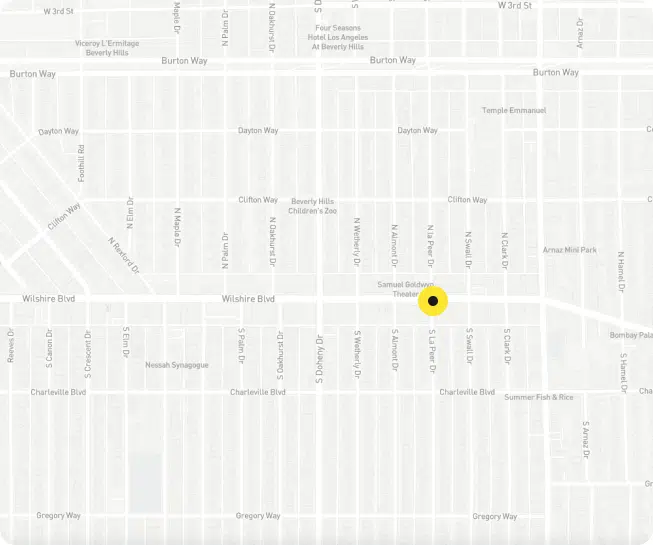CALIFORNIA LEMON LAW ADVOCATES, CALL (323) 675-3282 FOR YOUR FREE CASE EVALUATION - AVAILABLE 24/7.

If you drive a new vehicle through Palmdale’s streets or along the Antelope Valley Freeway, the California Lemon Law protects you if your car has serious defects. A “lemon” is generally a new vehicle with a substantial defect that impairs its use, safety, or value and cannot be fixed after a reasonable number of attempts.
Residents of Palmdale are entitled to state consumer protections, including replacement vehicles, refunds, or compensation for persistent problems. Working with a Lemon Law lawyer familiar with local dealerships and repair centers ensures Palmdale buyers can navigate the process smoothly and secure the remedies they deserve. Our team can help you understand the California Lemon Law basics.
All types of vehicles are covered by California's Lemon Law, including cars, trucks, SUVs, motor homes, motorcycles, and more. However, these vehicles must be used for personal purposes, as commercial fleets have different rules.
Additionally, California regulations require the following criteria for a car to be considered a lemon.
A vehicle can be purchased, financed, or leased new. There are also some provisions for used vehicles.
The vehicle must be covered by the manufacturer's warranty.
The defect must substantially impair the vehicle's use, value, or safety.
Drivers are required to allow for a reasonable number of repair attempts at an authorized service center. If the vehicle is out of service for more than thirty days, this regulation may not be mandatory.
All defects must first occur within 18,000 miles or 18 months, whichever comes first.
For questions regarding whether a vehicle qualifies or not, we strongly advise drivers to get a free consultation from an experienced attorney in Palmdale.
| Vehicle Type | Coverage under CA Lemon Law | Typical Case Complexity | Common Issues | Compensation Range (if known) |
|---|---|---|---|---|
| New Cars | Fully covered under California Lemon Law if defects substantially impair use, value, or safety and persist after a reasonable number of repair attempts. | Moderate to high; cases often straightforward if defect documented and warranty active. | Engine or transmission defects, electrical problems, suspension or brake failures. | Refund, replacement vehicle, or cash settlement typically ranging from $5,000–$50,000+, depending on vehicle value and defect severity. |
| Used Cars / Certified Pre-Owned (CPO) | Coverage limited; only applies if the defect is covered under remaining manufacturer's warranty. Cases depend on purchase price and warranty terms. | Higher complexity; proving defect and warranty coverage can be challenging. | Electrical issues, drivetrain problems, hybrid system failures, emissions defects. | Refund or replacement less common; partial compensation possible depending on remaining warranty and case specifics. |

Palmdale Lemon Law lawyers frequently handle cases involving a variety of popular car brands and models. These often include Ford trucks and SUVs, Toyota sedans and hybrids, Chevrolet pickups, and other vehicles that residents commonly drive around the Antelope Valley and greater Los Angeles area.
California Lemon Law applies to both domestic and imported vehicles, so whether your car is made in the U.S. or overseas, you may be protected if it meets the criteria for a “lemon.” Some models may be more prone to lemon law claims due to recurring mechanical issues, defective electronics, or safety-related problems that dealerships cannot resolve despite multiple repair attempts.
To better understand what cars qualify for Lemon Law, we strongly advise discussing the case with an expert legal team. A professional attorney can help direct a successful lemon law claim, with the hopes of getting a replacement vehicle or a full refund.
In Palmdale, our firm frequently handles Lemon Law cases for vehicles with recurring or serious defects. For example, Volkswagen owners often face emission system failures, while Ford trucks and SUVs may have transmission or engine issues. Toyota sedans and hybrids sometimes experience electrical or hybrid system problems, and Chevrolet pickups are often reported with suspension or brake defects. By focusing on the unique challenges of each brand, our attorneys help vehicle owners pursue refunds, replacements, or fair settlements under California’s Lemon Law.
Our Palmdale Lemon Law lawyers have many years of experience to handle your lemon case. Recent reports show Lemon Law cases surging to 7,000 more filings in California than the previous year (2024 vs. 2023), only cementing the fact that experienced lawyers are needed now more than ever.
In fact, you pay nothing out of pocket! We don't get paid if we don't win. With the average CA attorney's fees climbing close to $400 per hour, working on a contingency basis is an optimal solution.
We have a dedicated case manager who will answer your questions.
A California Lemon Law attorney has the inside knowledge of state and federal laws (Magnuson-Moss Warranty Act). This experience helps determine when a lemon vehicle is eligible for compensation.
When filing a Palmdale Lemon Law claim, our attorneys follow this process:
Free case evaluation. The first step is for an experienced attorney to meet with the client, ensuring that the car qualifies for a claim.
Gather documentation. Our law offices help gather the appropriate evidence to prove the defect. Documentation may include the purchase agreement, warranty paperwork, repair orders, and any communication with the dealership.
Contact the manufacturer. On behalf of our client, we reach out to the manufacturer and ask for a response about the lemon car.
File a Lemon Law claim. The law firm files with the California Department of Consumer Affairs (DCA). In some cases, the claim is finalized through arbitration.
When the vehicle qualifies, drivers can expect either a replacement vehicle or a Lemon Law buyback. In some cases, the manufacturer will settle quickly, and the case only takes a few months. With complex claims, the process can be longer.
Call now at (800) 917-7147 for your free case evaluation — available 24/7.
Briefly fill out our quick online form or skip the wait and call (855) 452-0693
We evaluate your claim, contact the manufacturer, and negotiate a favorable settlement for you.
We’ll squeeze every last cent from your car’s manufacturer.
Discovering a defect in your new vehicle is not only frustrating but can also pose safety risks. If your vehicle requires repairs for a dangerous defect, here’s a step-by-step guide on what actions to take:.
This FAQ section helps vehicle owners in Palmdale, California, understand their rights and how to pursue compensation under the state’s Lemon Law.
A vehicle may qualify as a lemon in Palmdale if it has a defect covered by the manufacturer's warranty and has gone through the repair process multiple times. The claimant must be able to prove that the problem substantially impairs the vehicle’s use, safety, or value.
Most consumers must act quickly, as the vast majority of California Lemon Law claims must be filed within a limited timeframe after the defect is discovered. Initially, the defect must be noticed within 18,000 miles or 18 months. Then, there is a four-year statute of limitations.
Yes, certain used vehicles, including certified pre-owned cars, may be covered depending on the purchase price and whether the defect cannot be repaired at an authorized repair shop. The car must still be covered by the manufacturer's warranty.
Many law offices can help file claims for leased vehicles, including cases where the lessee continues making monthly payments on a defective car. The same process applies as with a financed or purchased car.
Yes, most law firms offer free consultations. If the firm works on a contingency basis, you may not need to pay attorney fees, towing fees, repair costs, or court expenses until the case is won. Ask the firm for a detailed explanation of how the legal fees are collected.
Phone: (855) 939-4836
FAX: (800) 123-4567
E-mail: [email protected]
You may be entitled to compensation if your vehicle was subject to a recall.

© The Lemon Pros © 2026. All rights reserved.
Attorney Advertising. Prior results do not guarantee a similar outcome. This website is for informational purposes only and does not constitute legal advice. No attorney-client relationship is formed by viewing or using this website. For legal advice, please schedule a consultation.